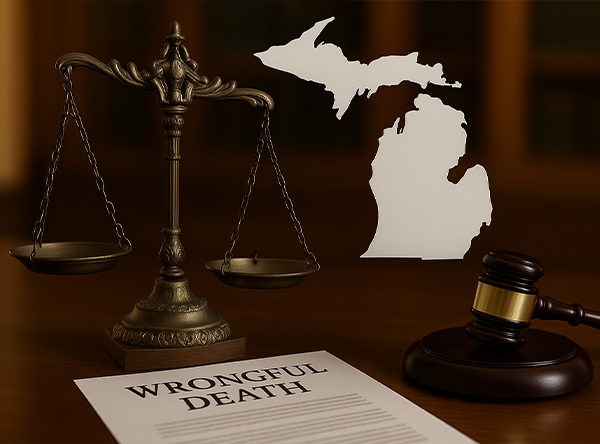Post-Daher, Michigan Court of Appeals Says the Loss of Services is Recoverable Under Wrongful Death Act

Last year, the Michigan Supreme Court issued their opinion in Daher v. Prime Healthcare (MSC Case No. 165377), which held that the loss of earning capacity was not recoverable under the Wrongful Death Act (WDA) and that the WDA only provides for enumerated damages. According to the text of the WDA, “the loss of services” is not a type of enumerated damage. Last month, the Michigan Court of Appeals issued the published opinion of Demott v. VHS Harper-Hutzel Hospital (MCOA Case No. 369500) interpreting whether the loss of services could be recovered under the WDA.
The underlying facts of Demott concern the death of a premature baby. His mother opened up an estate and filed a wrongful death action. The lawsuit requested damages, including the loss of [the baby’s] future earnings and the loss of [the baby’s] household services. The Court of Appeals had to determine whether these damages were recoverable under the Wrongful Death Act. In doing so, the Court studied the history of the Wrongful Death Act and Daher’s interpretation of it. There was “no serious dispute” that the loss of earnings capacity damages were no longer recoverable post-Daher.
Could the loss of services be recovered though? The Court held that such a loss could be recovered. Its holding was based upon an interpretation that the loss of services was a type of damage that was recoverable since 1848! The Court also had to address whether the damages requested given the nature of the facts were too speculative even if they were legally recognized. The Court held that such damages were not necessarily too speculative. It explained that the jury is in a better position to assess the damages and determine the veracity of what the plaintiff is seeking. Furthermore, calculating damages in a wrongful death case will always require some degree of speculation because of the nature of the involved claims.
As of the writing of this article, the Demott defendants have not sought leave to appeal with the Michigan Supreme Court. For the time being and unless the Michigan Supreme Court ends up ruling otherwise, hospitals and medical providers should continue to incorporate the loss of services as a cognizable category in their defense evaluations.
Please feel free to reach out to Carlos A. Escurel or Silvia A. Mansoor with any questions about Demott or Wrongful Death Act damages.

